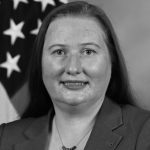Inaugural Space and Spectrum Policy Conference
June 24–25, 2025
@ University of Colorado Law School
“Space Sustainability: The ability to maintain the conduct of space activities indefinitely into the future in a manner that is safe, peaceful, and responsible to meet the needs of the present generations while preserving the outer space environment for future activities and limiting harm to terrestrial life.”1
NASA’s Space Sustainability Strategy Volume 1: Earth Orbit
Exploitation of space has exploded in the last decade23:
- 2,781 commercial satellites were deployed during 2023 – a 20% increase over 2022;
- 9,691 active satellites in orbit in 2023 – a 361% increase in five years;
- 15,000 – the number of satellites that SpaceSail (China) plans to have orbiting by 2030;
- 42,000 – the number of satellites that SpaceX plans to eventually have orbiting;
- $400B – the revenue of the global space industry.
In theory, space is infinite. In practice, it is not. Practical and physical limitations of the space environment necessarily funnel space missions into a handful of orbital regimes and spectrum bands. As barriers to entry continue to fall, the competition for these limited resources results in orbital congestion and the risks of both harmful radio frequency (RF) interference and physical collisions, the latter of which results in debris fields which further increase the risk of collisions. International cooperation and intelligent operational regulations are required to preempt the potentially devastating effects of unsustainable practices and unbridled exploitation.
Silicon Flatirons is organizing a conference in Boulder, CO on June 24–25, 2025 to explore the challenges in maintaining space as a resource.
Featured keynote speakers:

FCC Commissioner

Vice President, Satellite Policy at SpaceX

Principal Deputy Assistant Secretary and Deputy Administrator, NTIA
The conference will bring together experts from the scientific, commercial, regulatory, and defense sectors to look out over different time horizons and discuss questions such as:
- How might we manage radio frequency (RF) spectrum, in space and terrestrially, to avoid harmful interference between scientific, commercial, and defense systems?
- What challenges do mega-constellations pose to space sustainability? What policies and regulations are required to manage RF spectrum conflicts between multiple satellite systems? What is the carrying capacity of space?
- Space is a relatively new domain for spectrum management with different characteristics than the surface of the Earth. Is this an opportunity to re-write the book on spectrum management?
- What role does standards play? What enforcement mechanisms are necessary to ensure compliance in an international regime? Between penalties and incentives, which is more likely to modulate stakeholder conduct?
- What policies and regulations are required to sustain space as a common resource? Areas to regulate would include: traffic management; end-of-life disposal; debris management; and recycling.
- Dark and RF-quiet skies are important for a variety of terrestrial concerns. For example, for many indigenous people, the moon and stars are part of their mythology and culture. Professional astronomers and amateur sky-gazers alike wish for pristine skies. How do we balance these concerns?
The results of the Conference discussions will be documented in a report.
Footnotes
1 https://nodis3.gsfc.nasa.gov/OPD_Docs/NPS_1001_111_.pdf
2 https://sia.org/commercial-satellite-industry-continues-historic-growth-dominating-global-space-business-27th-annual-state-of-the-satellite-industry-report/
3 So long and thanks for all the space junk: China-based Starlink competitor SpaceSail plans to have 15,000 satellites deployed by 2030, and it’s not the only one with its eyes on the skies
Sessions
Day One Check in and Breakfast
@ Wolf Law Building, Foyer and Boettcher Hall
Attendees are welcome to check-in and enjoy a continental breakfast buffet before the day’s programming gets underway.
Welcome
@ Wolf Law Building, Wittemyer Courtroom

Executive Director & Entrepreneurship Initiative Director, Silicon Flatirons
Resolving Spectrum Conflicts Between Active Users in Space and on Earth
With innovations in technology outpacing the ability of domestic regulators and international organizations to resolve anticipated spectrum conflicts through traditional ex ante measures, this panel explores alternative approaches. The agenda for the next World Radio Conference in 2027 is dominated by space-related issues such as the spectrum allocation needs of mega-constellations and direct-to-device services from space. How can these issues be peacefully resolved ahead of the conference or supplemented with reliable ex post mechanisms to ensure interference-free co-existent among in-band and out-of-band users in space and on the ground?

(Moderator)
Partner and Co-Chair, Space Exploration and Innovation Practice, DLA Piper

Head of Regulatory, Astranis

Vice President, Engineering and Technology Policy, T-Mobile

CEO, iPosi, Inc.
Break
Sustaining Orbital Space as a Resource
Near-Earth space is becoming increasingly crowded, with over 12,500 satellites in orbit and more than 128 million pieces of debris threatening active missions. As satellite launches continue to rise, the risk of collisions and unusable orbital zones grows, raising urgent questions about regulation, traffic management, and debris mitigation. This panel will explore political, technical, and legal solutions to ensure space remains a sustainable resource for all humanity.

(Moderator)
Spectrum Policy Initiative Co-director, Silicon Flatirons

Director, Space Resources Program, Colorado School of Mines

CEO, Logos Space Services

Associate, Wiley Rein LLP

Associate Professor, Colorado Law
Special Announcement
Lunch
@ Wolf Law Building, Schaden Commons
Navigating the Final Frontier: Contemporary Challenges in Space Governance
As humanity’s presence in outer space rapidly expands—from satellite mega-constellations to a return to the moon and emerging space mining ventures—the need for robust and adaptive governance frameworks has never been greater. This panel will bring together international law, space policy, commercial space operations, and national security to explore the evolving challenges of space governance.

(Moderator)
Founder and CEO, Salt Point Strategies

Director, Colorado Space Policy Center

Deputy Associate Administrator, NTIA Office of Spectrum Management

Vice President, Global Regulatory Affairs & Public Policy, Lockheed Martin
Break
Historical Lessons for Governing the Final Frontier
As space activity accelerates, the need for shared governance, standards, and coordinated infrastructure is increasingly urgent. This panel draws on historical lessons from past U.S. infrastructure development—like railroads and telecommunications—to inform how we might build more inclusive and sustainable systems in orbit. Experts will explore how early decisions about standards and coordination can prevent fragmentation and shape the future of space governance.

Director Emeritus and Distinguished Advisor, Silicon Flatirons

Senior Research Scientist, Microsoft

Distinguished Chief Spectrum Economist, The MITRE Corporation

Professor of History of the American West, University of Colorado Boulder

Senior Vice President, Regulatory Affairs and International Strategy, AST Space Mobile
Closing Remarks

Executive Director & Entrepreneurship Initiative Director, Silicon Flatirons
Reception
@ Wolf Law Building, Foyer and Boettcher Hall
After day one of the conference concludes, attendees and speakers are invited to Boettcher Hall for appetizers, refreshments, and conversation.
Day Two Check in and Breakfast
@ Wolf Law Building, Foyer and Boettcher Hall
Attendees are welcome to check-in and enjoy a continental breakfast buffet before the day’s programming gets underway.
Welcome
@ Wolf Law Building, Wittemyer Courtroom

Executive Director & Entrepreneurship Initiative Director, Silicon Flatirons
Dark and Quiet Skies
As satellite numbers grow, so do issues of orbital light and radio pollution, disrupting astronomy and impacting Indigenous communities losing access to dark skies. Astronomical observation often lacks legal protection under current space laws, despite its scientific and cultural importance. This panel will bring together experts from multiple fields to address the technical, legal, and cultural challenges of preserving dark and quiet skies.

(Moderator)
Theory Division Chief, NTIA/ITS

Assistant Teaching Professor, University of Colorado Boulder

Adjunct Research Fellow, University of Southern Queensland

Associate Dean and Professor of Astronomy, University of Virginia

Technical Fellow: Payload Engineering, Logos Space Services

Astronomer
Break
Beyond Earth: Extending Spectrum Management to Deep Space and the Moon
As space activity expands to the Moon and deep space, adapting traditional Earth-based spectrum management becomes a pressing challenge. Current frameworks like those from the ITU and FCC may not fully address the complexities of spectrum allocation, enforcement, and international coordination in extraterrestrial environments. This panel will explore the legal, technical, and geopolitical issues of managing radio spectrum beyond Earth, with input from experts across sectors.

(Moderator)
Senior Research Associate, University of Colorado Boulder

George Sharswood Fellow, University of Pennsylvania Carey Law School

Academy and Emeritus Professor, Penn State University

Distinguished Chief Spectrum Economist, The MITRE Corporation

Deputy Associate Administrator, NTIA Office of Spectrum Management

Professor, University of Colorado Boulder
Closing Remarks

Executive Director & Entrepreneurship Initiative Director, Silicon Flatirons
Munch & Muse: Scouting the Speculative Frontier
@ Wolf Law Building, Rm 204 (will not be livestreamed)
Nobody knows what’s next, but smart planning means preparing not just for the consensus future but also the wildly unexpected. This optional closing session takes a speculative look at space technology, business, and policy over the next 10+ years. A panel of big thinkers will explore assumptions, unknowns, inevitabilities, and edge cases. Together, the panel and audience will craft provocative and plausible stories of Alternative Futures.

(Moderator)
Director Emeritus and Distinguished Advisor, Silicon Flatirons

Director, Space Resources Program, Colorado School of Mines

Head of Regulatory, Astranis

Partner and Co-Chair, Space Exploration and Innovation Practice, DLA Piper

CEO, Logos Space Services